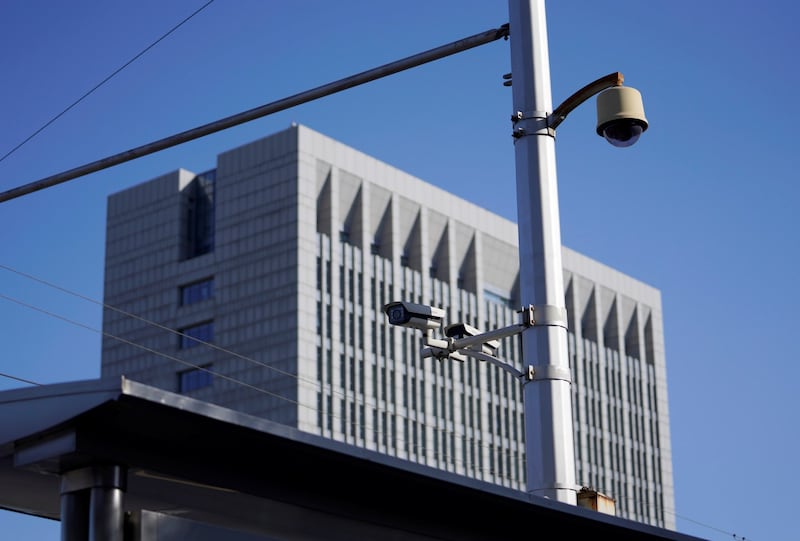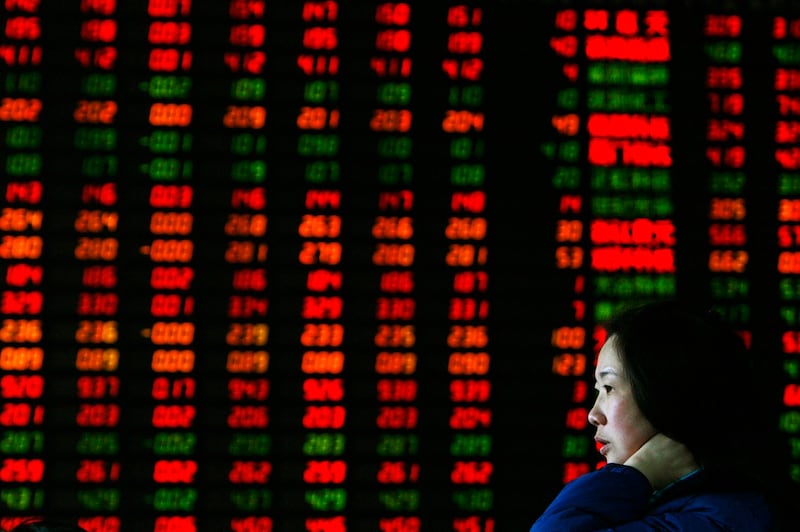In a dramatic move, China has amped up its efforts to combat corruption within the medical sector, targeting illicit collaborations between hospital administrators, doctors and medical representatives.
Accusations include inappropriate prescription practices for personal profit, and bribery. The Central Commission for Discipline Inspection, or CCDI, has urged violators to surrender voluntarily.
Such crackdowns are usually seen as routine, but the CCDI said last month that this would be a year-long nationwide crackdown to root out corruption in the pharmaceutical sector, Bloomberg reported on Monday.
The campaign has triggered a massive shockwave affecting thousands of multinational companies operating in the country according to reports on Wednesday. An executive from a foreign pharmaceutical company in Wuhan told RFA, “Hospitals are now barring medical representatives, and business operations for foreign pharmaceutical firms in China have virtually ground to a halt.”
Xu Hong, head of the China market for the American pharmaceutical company based in Wuhan, said, “Local hospitals have explicitly refused entry to pharmaceutical representatives, seriously disrupting regular sales operations. Normal work processes are impossible now.
“We used to send representatives to hospitals for visits, but strict measures prevent any pharmaceutical company representatives from entering,” Xu said, adding, “Many academic and exchange conferences have also been halted.”
Probing the past
At least 155 officials at hospitals China-wide were being probed for allegedly violating laws and regulations by late last month – more than double the total number of those last year. Reports suggest that the anti-corruption drive might delve into misconduct spanning back two decades.
The unprecedented anti-corruption initiative – at least since the country’s era of reforms began – got underway relatively recently.
According to an announcement on July 31 from China's National Supervisory Commission website, a video conference was held in Beijing on July 28 to come up with a strategy for the centralized rectification of corruption issues in the pharmaceutical sector. Deputy Secretary of the CCDI, Yu Hongqiu, attended the meeting.

The conference highlighted the importance of rooting out corruption in the pharmaceutical sector to further the “Healthy China” strategy and purify the industry’s environment.
Authorities emphasized the need to monitor leadership and key positions closely, addressing both bribe-givers and receivers. The focus is on a batch of corruption cases in the pharmaceutical sector to create a deterrent effect.
On Monday, online rumors suggested that hospitals might be scrutinized for the past 20 years, with prescription records being extracted for verification.
An insider from Shanghai’s medical system, Zhang Ning, confirmed this to be the case.
In an RFA Mandarin radio interview on Monday, Zhang said, “The crackdown will focus on the past 20 years, starting from 2003, which is when hospitals began computerized record-keeping. Both upstream and downstream sectors are under scrutiny.
“Pharmaceutical stocks plummeted today, with major companies dropping by 5%,” he added.
“The entire supply chain is under scrutiny, and it’s not just about drug purchases,” said Zhang. “From morning till night, medical representatives stationed at hospitals have been seen treating doctors and hospital directors to coffee, meals, and drinks.”
Medical sector reels
Zhang revealed that representatives from pharmaceutical companies incessantly promote their products to doctors and the hospital management, with Western and generic medicines favored.
“Mostly they’re Western medicines. During favorable times, annual gifts of about CNY10 million [U.S.$1.4 million] are given to doctors or hospital directors. This has been an industry practice, not just for a year or two but for decades. I’m unsure of the exact aim this time, but it might be related to insufficient funds in the medical insurance.”
Zhejiang netizen “Little Black Night Eyes” voiced shock online on Saturday about rumors that authorities have been directly handcuffing and removing pharmaceutical reps and doctors from hospitals, marking an unprecedented crackdown.
“Inside sources know that most inflated pricing is found in traditional Chinese medicines, but real effective drugs usually don’t have high kickbacks. Generally, the issue isn’t with the medicine, but with medical equipment,” the netizen said.
According to the Chinese-language Economic Observer Online, on the morning of August 3, when pharmaceutical representative Liu Li checked his phone, he was greeted by messages stating that many pharmaceutical groups in certain provinces have been dissolved or renamed, while some foreign companies have disbanded their academic conference communication groups.
Visits to hospitals have been reportedly halted by certain companies and others are no longer sponsoring conferences.
Public interest advocate He Peirong believes that pharmaceutical representatives bribing hospital directors and doctors is an open secret in the industry. The root cause is the direct link between doctors’ incomes and the prescriptions given to patients.
Reforms would be implemented in the second half of the year, she said.
“The key focus of the medical reforms in the latter half of this year is the assessment mechanism for medical personnel and the newly introduced distribution system. Previously, the income of medical staff was directly linked to revenues from medical services. With this reform, income will no longer be linked to services, and future performance assessments will be public welfare-oriented.”
‘Shock and awe’
Over 150 hospital directors and secretaries have been investigated, including two pharmaceutical sector chairmen that have reportedly surprised industry insiders due to their prominence – Zhou Wei of Wenning Health and Fan Zhihe of Cylon Biotech.
"Campaigns against medical corruption have been going on for years ... but this round of crackdown is more forceful than previously," Zhao Heng, founder of consultancy Latitude Health, told Reuters on Tuesday.

Shares of Apichope Pharma, Allist Pharma, and Olymvax Biopharma have slumped between 20% and 30% since July 28, when the CCDI – often referred to as “China’s top graft buster” – vowed “shock and awe” in the crackdown.
Wang Jing, a commentator from Guizhou, said he believed that China's current campaign-style anti-corruption actions will deal a massive blow to the medical industry and that timing of the crackdown suggested that the government was squeezing the sector for money.
"The government is merely cracking down because of financial difficulties and targeting those with conflicting interests," Wang said.
On Monday, news surged regarding a CNY35.2 million (U.S.$4.9 million) equipment deal in which the hospital director allegedly took a CNY16 million kickback.
The incident involves former party officials from Yunnan's Pu'er City People’s Hospital, who were exposed for accepting bribes during the procurement of a linear accelerator, or linac, a device that uses microwave technology to kill cancer cells or shrink tumors.
Translated with additional reporting by Chris Taylor. Edited by Mike Firn and Taejun Kang.
